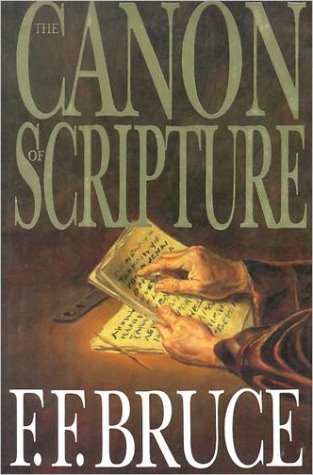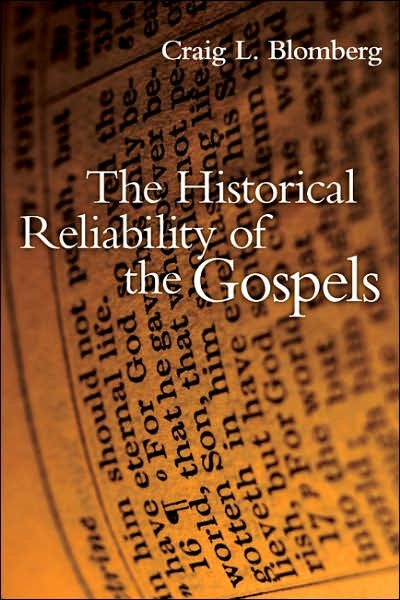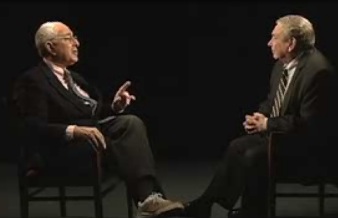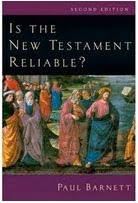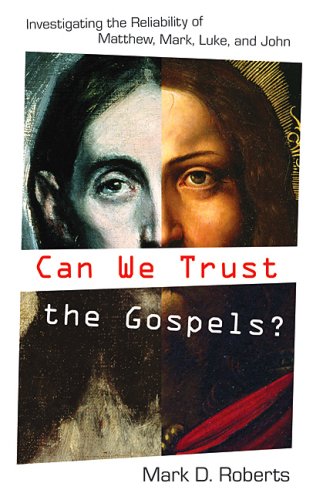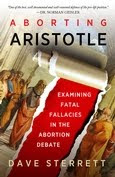 Welcome to the Ultimate Apologetics MP3 Audio Page.
Welcome to the Ultimate Apologetics MP3 Audio Page.
The goal of this page is to create the largest single page of quality apologetics Mp3's on the web. Please help make this page grow by
suggesting your own links to high quality apologetics audio and debates.
Continue to check this page as more links will be added as they are acquired. Certain audio series may be podcasted in iTunes.
Last updated: April 4, 2011.
AUDIO FEEDS
•
Advanced Apologetics - Dr. Phil Fernandes
•
Apologetics315 Audio Feed
•
Apologetics315 Audio Junkie Feed
•
Apologetics - Dan Olinger
•
Basic Christian Beliefs - Dr. Phil Fernandes
•
Cults - Dr. Phil Fernandes
•
Cults (Advances) - Dr. Phil Fernandes
•
Darwin or Design
•
Ethics - Dr. Phil Fernandes (be advised: contains some graphic descriptions)
•
European Leadership Forum
•
Hermeneutics - Dr. Phil Fernandes
•
Historical Apologetics - Dr. Phil Fernandes
•
History of Christian Thought - Dr. Phil Fernandes
•
Introduction to Apologetics - Dr. Phil Fernandes
•
Introduction to Philosophy
•
Introduction to Islam
•
Introduction to Philosophy - Dr. Phil Fernandes
•
Learning Skills - Dr. Ken Samples
•
Logical Fallacies - 1
•
Logical Fallacies - 2
•
New Age & the Occult - Dr. Phil Fernandes
•
Philosophical Apologetics - Dr. Phil Fernandes
•
Philosophy of Religion - Dr. Paul Copan
•
Philosophy of Religion - Dr. Phil Fernandes
•
Refuting Religious Pluralism - Dr. Phil Fernandes
•
Roman Catholicism - Dr. Phil Fernandes
•
Saddleback Apologetics Audio 2009
•
Secular Religions - Dr. Phil Fernandes
•
Various Phil Fernandes Apologetics (over 100 audios)
•
Wayne Grudem's Systematic Theology
•
William Lane Craig Debate Feed
•
William Lane Craig Q&A
•
WorldViews - Dr. Phil Fernandes
•
World Religions - Dr. Phil Fernandes
Dr. Phil Fernandes MP3:
Defending the Faith
1 2 3 4
Defenders of the Faith Conference
1 2 3 4
Introduction to Apologetics
1 2 3 4 5 6 7 8 9 10 11 12
Advanced Apologetics
1 2 3 4 5 6 7 8 9 10 11 12 13 14 15 16 17 18 19 20 21 22 23 24 25 26 27 28 29 30 (
podcast in iTunes)
Historical Apologetics
1 2 3 4 5 6 7 8 9 10 11 12 13 14 15 16 17 18 19 20 21 22 23 24 25 26 27 28 (
podcast in iTunes)
Philosophical Apologetics
1 2 3 4 5 6 7 8 9 10 11 12 13 14 15 16 17 18 19 20 21 22 23 24 25 26 27 28 29 30 (
podcast in iTunes)
Philosophy
1 2
Introduction to Philosophy
1 2 3 4 5 6 7 8 9 10 11 12 13 14 15 16 17 18 19 20
Philosophy of Religion
1 2 3 4 5 6 7 8 9 10 11 12 13 14
The Thought of Francis Schaeffer
1 2
History of Christian Thought
1 2 3 4 5 6 7 8 9 10 11 12 13 14 15 16 17 18 19 20 21 22 23 24 25 26 27 28 29 30 31 32 33 34 35 36 37 38 39 40 41 42
Does God Exist?
1 2
The Absurdity of Life Without God
1 2
Evidence for God
1 2
The Case Against Evolution
1 2
The Case For Creation
1 2
The Cumulative Case for God
1 2
Historical Evidence for Christ
1 2
The Jesus of History
1 2
Did Jesus Really Rise?
1 2
The Resurrection of Jesus
1 2
Is Jesus the Messiah?
1 2
The Shroud of Turin
1 2
The Historical Jesus in a Postmodern Age
1
Evil and Human Suffering
1 2
The Problem of Evil
1 2
Refuting Arguments for Atheism
1
Old Earth, Young Earth debate
1
Is Christianity Intolerant?
1 2
Christology
1 2 3 4 5 6 7 8 9 10 11 12 13 14
Basic Christian Beliefs
1 2 3 4 5 6 7 8 9 10 11 12
Hermeneutics
1 2 3 4 5 6 7 8
Biblical Reliability
1 2
Refuting the Jesus Seminar
1 2
DaVinci Code
1 2 3
The Word of Faith Movement
1 2
Refuting Oneness Pentecostalism
1 2
Roman Catholicism
1 2 3 4 5 6 7 8 9 10 11 12 13 14 15 16 17 18 19 20 21 22 23 24
Jehovah's Witnesses
1 2
Jehovah's Witnesses
1 2 3 4
Mormonism
1
Mormonism
1 2 3 4
Buddhism & Hinduism
1 2
Eastern Religions
1 2
Islam Unveiled
1 2
Islam and Judaism
1 2
The New Age Movement
1 2
New Age and the Occult
1 2 3 4 5 6 7 8 9 10 11 12
Cults
1 2 3 4 5 6 7 8 9 10 11 12
Advanced Cults
1 2 3 4 5 6 7 8 9 10 11 12 13 14 15 16 17 18 19 20 21 22 23 24
Cults 2006-1
Common Beliefs
Cults 2006-2
Mormons 1
Cults 2006-3
Mormon Writings
Cults 2006-4
Mormons 2
Cults 2006-5
Scientology
Cults 2006-6
Theosophy, Moon, The Way
Cults 2006-7
Jehovah’s Witnesses
Cults 2006-8
Problem Passages 1
Cults 2006-9
Problem Passages 2
Cults 2006-10
Christian Science
Cults 2006-11
Unity School, 7th Day
Cults 2006-12
Jesus Only,Children of God
Wicca
1
Do All Faiths Lead to God?
1
World Religions
1 2 3 4 5 6 7 8 9 10 11 12
World Religions 2006
1 2 3 4 5 6 7 8 9 10 11
World Views
1 2 3 4 5 6 7 8 9 10 11 12 13 14 15 16 17 18 19 20 21 22 23 24
Secular Religions
1 2 3 4 5 6 7
Refuting Religious Pluralism
1 2 3 4 5 6 7 8 9 10
Moral Relativism
1 2
Morality and Tolerance
1 2
Pluralism
1 2 3
Refuting Globalism
1 2
Postmodernism
1 2
Refuting Atheism and Pantheism
1 2
Communism
1 2 3
America's Spiritual History
1 2
A Christian Philosophy of Education
1 2
Abortion
1 2
The Sanctity of Human Life
1 2
Homosexuality
1 2
Ethics
1 2 3 4 5 6 7 8 9 10 11 12 13 14
Debate: Fernandes vs. Barker
1 2 3 4
Debate: Fernandes vs. John
1 2 3
Debate: Fernandes vs. Lowder
1 2 3 4
Debate: The Bible and Homosexuality
1 2 3
Many more Dr. Phil Fernandes MP3's can be found
here.
William Lane Craig Debate Mp3:
William Lane Craig vs. Hector Avalos
MP3
William Lane Craig vs. Brian Edwards #1
MP3
William Lane Craig vs. Brian Edwards #2
MP3
William Lane Craig vs. Austin Dacey
MP3
William Lane Craig vs. Garrett Hardin
MP3
William Lane Craig vs. Frank Zindler
MP3
William Lane Craig vs. Peter W. Atkins
MP3
William Lane Craig vs. John Dominic Crossan
MP3
William Lane Craig vs. Gerd Ludemann
MP3
William Lane Craig vs. Jamal Badawi
MP3
William Lane Craig vs. Ray Bradley
MP3
William Lane Craig vs. Eddie Tabash
MP3
William Lane Craig vs. Arif Ahmed
MP3 (Q & A)
Dr. Douglas Groothuis Apologetics MP3:
Introductory Lecture
Nature of Apologetics, 1
Nature of Apologetics, 2
Developing an Apologetic Mind, 1
Developing an Apologetic Mind, 2
Worldviews, Truth, and Knowledge, 1
Worldviews, Truth, and Knowledge, 2
Truth and Knowledge
Conventionalism
Testing Worldviews
Natural Theology
Atheism
Cosmological Arguments, 1
Cosmological Arguments, 2
Cosmological Arguments, 3
Design Arguments, 1
Design Arguments, 2
Design Arguments, 3
Design Arguments, 4
God and Moral Meaning, 1
God and Moral Meaning, 2
God and Moral Meaning, 3
Argument from Religious Experience
Question and Answers
Pascal's Wager
Miracles, 1
Miracles, 2
Reliability of the New Testament, 1
Reliability of the New Testament, 2
Reliability of the New Testament, 3
Apologetic Role Playing
Claims of Jesus and Resurrection
Easternism and New Age, 1
Easternism and New Age, 2
Easternism and New Age, 3
Testimony on New Age
Religious Pluralism and Exclusivism
Islam, 1
Islam, 2
Brief Comments on the Medium of Video
Intelligent Design and Science, 1
Intelligent Design and Science, 2 (Closing Comments)
God and the Problem of Evil, 1
God and the Problem of Evil, 2
Notes for these lectures can be found
here.
Stefan Gusavsson: New Testament Case for Apologetics I -
Jesus as Apologist
David Robertson -
The Dawkins Letters
John Frame -
Christian Apologetics: 27 Lectures on iTunes
Gregory Boyd and Paul Eddy -
Jesus: Lord or Legend? MP3
Kenneth Samples -
Veracity of the Christian Worldview MP3
Mark D. Roberts -
Historicity of the Gospels MP3
Rob Bowman -
Jehovah’s Witnesses and Jesus Christ MP3
Rob Bowman, Gary Habermas, Mike Licona -
The Talpiot Tomb MP3
Paul Copan -
God as the Best Explanation MP3
James Sire -
Worldviews Analysis MP3
William Lane Craig -
Arugments for the Existence of God MP3
J. P. Moreland -
The Christian Mind MP3
Dan Wallace -
Reinventing Jesus MP3
Greg Koukl -
Moral Relativism MP3
John Frame -
Presuppositional Apologetics MP3
M. James Sawyer -
Canonicity of Scripture MP3
John Robbins - An Introduction to Apologetics:
John MacArthur's Podcast episodes on the Creation Account of Genesis:
The Battle for the Beginning Part 1 |
2 |
3 |
4 |
5 |
6 |
7 |
8 |
9 |
10 |
11 |
12 |
13 |
14 |
15 |
16 |
17 |
18 |
19 |
20
Can Historians Prove that Jesus Rose from the Dead?
Mike Licona vs. Bart Ehrman
MP3 |
Video
Debate: On the Resurrection of Jesus Christ
Mike Licona vs. Richard Carrier
MP3 |
Video
Debate: Did Jesus Rise From the Dead?
Mike Licona vs. Dan Barker
MP3 |
Video
What Was the 1st Century Fate of Jesus?
Mike Licona vs. Ali Ataie
MP3 |
Video
Christianity and Islam - Did Jesus Rise?
Mike Licona vs. Shabir Ally
MP3 |
Video
James White: Apologetic Methodoloy:
Part 1 |
Part 2 |
Part 3
Basic Sentential Logic and Informal Fallacies
Audio with PDFs. by Rick Grush, UCSD -
podcast on iTunes
Cornelius Van Til
Part 1-The New Evangelicalism,
Part 2-Greek Philosophy #1,
Part 3-Greek Philosophy #2,
Part 4-Church Fathers #1,
Part 5-Church Fathers #2,
Part 6-St. Augustine,
Part 7-The Middle Ages,
Part 8-Modern Philosophy Before Kant,
Part 9-Immanual Kant,
Part 10-Modern Philosophy After Kant,
Part 11-Karl Barth #1,
Part 12-Karl Barth #2.
Lecture on Apologetic (16 Lectures - MP3) Gordon H. Clark.
Class 1,
Class 2,
Class 3,
Class 4,
Class 5,
Class 6,
Class 7,
Class 8,
Class 9,
Class 10,
Class 11,
Class 12,
Class 13,
Class 14,
Class 15,
Class 16
Introduction to Apologetics by Ronald Nash
These lectures are a summary of Dr. Nash's introductory course to Christian Apologetics. Now you have to go right to
biblicaltraining.org to get the audio. They do not allow direct linking to their audio files.
• Introduction
• Epistemology
• Existence of God - Introduction
• Existence of God - Proofs
• Problem of Evil
• Closing Remarks
History of Philosophy and Christian Thought by Ronald Nash
This course is a basic introduction to the history of philosophy and Christian thought.
Now you have to go right to
biblicaltraining.org to get the audio. They do not allow direct linking to their audio files.
• Worldviews
• Naturalism
• Plato: Introduction and Summary
• Plato: Theory of Knowledge
• Aristotle, Plotinus, and Aquinas
• The Case against Open Theism
More files are going to be added to the above list because it is a podcast. Be sure to subscribe to the RSS feed for more.
Kenneth Samples Audio Lectures
John Warwick Montgomery Audio
Testing the Truth Claims of Christianity
Part 1 |
Part 2 |
Part 3 |
Part 4 |
Part 5 |
Part 6
• The New Atheists -
MP3
• Responding to Bart Ehrman's "Misquoting Jesus" -
MP3
• Answering the Objections of Unbelievers -
Part 1 |
Part 2
• Defending the Christian Faith in an Age of Relativism -
MP3
The Life and Thought of Francis Schaeffer by Kim Riddlebarger
Part 1 - The Life and Significance of Francis Schaeffer -
MP3
Part 2 - Francis Schaeffer: Sources of His Thought (Old Princeton) -
MP3
Part 3 - Francis Schaeffer: Sources of His Thought (Van Til) -
MP3
Part 4 - Francis Schaeffer: Apologetic Methodology (Epistemology) -
MP3
Part 5 - Francis Schaeffer: Taking the Roof Off
-
MP3
Part 6 - Francis Scaheffer -- A Critical Evaluation -
MP3
Defending the Faith by Todd Swift /
Omaha Bible Church (Reformed Perspective)
1. The Meaning and Goal of Apologetics -
MP3
2. Obstacles to Biblical Apologetics (Part 1) -
MP3
3. Obstacles to Biblical Apologetics (Part 2) -
MP3
4. Solutions in Biblical Apologetics (Part 1) -
MP3
5. Solutions in Biblical Apologetics (Part 2) -
MP3
6. Unbiblical Apologetics (Part 1) -
MP3
7. Unbiblical Apologetics (Part 2) -
MP3
8. Models of Biblical Apologetics -
MP3
In Defense of Theistic Arguments - William Lane Craig, Alister McGrath, & Daniel Dennett
Mary Jo Sharp vs. Ehteshaam Gulam Debate: Did Jesus Die on the Cross?
MP3 Audio
The Transcendental Argument for the Existence of God - Matt Slick
MP3 Audio
Astrophysics Points to the God of the Bible by Hugh Ross
MP3 Audio
Fatherhood and Atheism: Paul Vitz Interview
MP3 Audio
The Psychology of Atheism by Paul Vitz
MP3 Audio
John Lennox Audio
• Engaging the New Atheism -
MP3
• Engaging the Mind: The Defense of Christianity -
MP3
• Using Scripture to Engage the Mind and Imagination -
MP3
Apologetics Interview with Norman Geisler
MP3 Audio
Where is God in Failure?
MP3 Audio by William Lane Craig
The Importance of Defending the Faith
MP3 by Charlie Campbell
SBTS Conference Audio Resources
• Understanding Universalism, Inclusivism, Pluralism, Exclusivism -
MP3
• Teaching the Only Savior to Atheists -
MP3
• Teaching the Only Savior to Postmoderns -
MP3
• Teaching the Only Savior to Other Cultures -
MP3
• The Gospel is an Offense–Don’t You Be -
MP3
• Do All Roads Lead to Heaven? -
MP3
Historical Apologists: MP3 Audio by Mike Reeves
• Introducing...
Athanasius -
Part 1 |
Part 2 - [MP3]
• Introducing...
Augustine -
Part 1 |
Part 2 - [MP3]
• Introducing...
Irenaeus -
Part 1 - [MP3]
• Introducing...
John Calvin -
Part 1 |
Part 2 |
Part 3 - [MP3]
• Introducing...
Justin Martyr -
Part 1 - [MP3]
• Introducing...
Martin Luther -
Part 1 |
Part 2 |
Part 3 |
Part 4 - [MP3]
• Introducing...
The Apostolic Fathers -
Part 1 |
Part 2
Reaching Out to Muslims
MP3 Audio by Keith Small
Atheism: Simply Lack of Belief in God?
MP3 Audio by William Lane Craig
Dead Sea Scrolls
MP3 Audio by Probe
Introduction to Worldviews: Greg Bahnsen
MP3 Audio
Why Am I A Christian?
MP3 Audio by James White
Richard Dawkins and John Lennox: Has Science Buried God?
MP3 Audio
The Veracity of the New Testament
MP3 Audio by Gary Habermas
5 Reasons God Exists
MP3 Audio by William Lane Craig
Phil Fernandes vs. Eddie Tabash Debate: Does God Exist?
MP3 Audio
Whatever Happened to Apologetics
MP3 Audio by Craig Parton
That's Just Your Interpretation
MP3 Interview with Paul Copan
Trusting the New Testament
MP3 Audio by Dr. Bill Cook
God, Evil and Suffering MP3 Audio by Bruce Little
Session 1 -
Part 1 |
Part 2 |
Part 3 |
Part 4
Session 2 -
Part 1 |
Part 2 |
Part 3
How Can a Good God Allow Suffering and Evil?
MP3 Audio by William Lane Craig
Old Earth Young Earth Debate
MP3 Audio
Plantinga's Evolutionary Argument Against Naturalism
MP3 Audio
Against Materialism by Alvin Plantinga
MP3 Audio
A Brief Historical Critique of the Zeitgeist Movie -
MP3
New Atheism by Norman Geisler
MP3 Audio
Problems of Evil by Douglas Geivett
MP3 Audio
Habermas, Flew & Wright Dialogue
MP3 Audio
Gary Habermas and Tim Keller
Audio Interviews
Dan Barker vs. Douglas Wilson Debate
MP3 Audio
Things That Matter Most Radio Program (
podcast here)
•
What Spiritual Knowledge Can Do for You - Dallas Willard
•
National Geographic’s The Lost Gospel of Judas - Bart Ehrman and Darrell Bock
•
Beyond Death: Evidence for Immortality - Gary Habermas
•
The Persuasiveness of Jesus - John Coleman and Pat Zuckeran
•
Discussion about Evolution’s "Flaws" - Paul Nelson and Karl Giberson
•
Can You Believe in Evolution and Still be A Christian? - Karl Giberson and Paul Nelson
•
Is God Really Good? - Wade Bradshaw
•
A Seeker’s Roadmap to the Quest for Meaning - Os Guiness
•
The Birth of Christianity and The Dead Sea Scrolls - Weston Fields
•
Faith and Doubt - John Ortberg
•
What Does it Take to Believe in God? - William Lane Craig
•
Does Science Make Belief in God Obsolete? - Gary Rosen
•
How the World's Most Notorious Atheist Changed His Mind - Roy Varghese
•
10 Books That Screwed Up the World - Benjamin Wiker
•
Did Jesus Exist or Was He Just a Myth? - Paul Maier
•
The New Atheist Crusaders - Becky Garrison
•
EXPELLED: No Intelligence Allowed - Mark Mathis
•
How Can We Know What Is True? - J.P. Moreland
•
How Reliable Is the Bible? - Pat Zukeran
•
Putting Worldviews to the Credibility Test - Ken Samples
•
Alister McGrath Responds to Richard Dawkins’ The God Delusion
•
Answering Tough Faith Questions - Ken Samples
•
The Case for the Real Jesus - Lee Strobel
•
Nothing: Something to Believe In - Nica Lalli
•
Edge of Evolution - Michael Behe
•
Why Good Arguments Often Fail - James Sire
•
The Privileged Planet - Guillermo Gonzalez
•
Did God Write the Bible? - Dan Hayden
•
The Lost Tomb of Jesus - Gary Habermas
•
Evidence for God Within Our Souls and Desires - Erwin McManus
•
Seeing Through Cynicism - Dick Keyes
•
Secret Gospels: Sorting Through Alternative Christianities - Darrell Bock
•
What a Million Monkeys Can and Can't Do - Benjamin Wiker
•
I Don't Have Enough Faith to Be an Atheist - Frank Turek
•
Answers to some of life's toughest questions - R.C. Sproul
•
Science & God: How We Harmonize the Two - Francis Collins
•
Near-death experiences: life after death or just hallucinations? - Gary Habermas
•
Does God Answer Prayer? - Duane Miller and Beth Irwin
•
Does archaeology tell us about the reliability of Scriptures? - Walter Kaiser
•
Am I More Than My Body and My Brain? - Peter Russell
•
Near-Death Experiences: Christian & Atheist Perspective - Hemant Metha & Howard Storm
•
Truth Decay - Doug Groothuis
•
Resurrection: Fact or Fiction? - Gary Habermas
•
Breaking the Da Vinci Code: Part 1 - Darrell Bock
•
Breaking the Da Vinci Code: Part 2 - Darrell Bock
•
Scientific Evidence for Answered Prayers - Rich Deem
•
The Case for Christmas - Lee Strobel
•
Darwin vs. Design - Nancy Pearcey
Dr. Dan Olinger Apologetics Course (
use this feed to podcast it)
1.
Intro 1: The Believer’s Responsibility
2.
Intro 2: Key Questions That Seekers Ask
3.
Intro 3: Winning People, Not Arguments
4.
What the Bible Says About Itself
5.
Development of Theme
6.
Absence of Contradiction, Part 1
7.
Absence of Contradiction, Part 2
8.
Accuracy: Archaeological Confirmation
9.
Canon: How Do We Know These Are the Right Books?
10.
Are the Words Accurately Preserved in Our Translations? Part 1
11.
Are the Words Accurately Preserved in Our Translations? Part 2
12.
Questions including DaVinci Code
13.
How Do We Know There’s a God?
14.
Evolution & Natural Selection
15.
Circular & Selective Dating
16.
Problems with Old Earth Creationism
17.
2nd Law of Thermodynamics
18.
Right and Wrong
19.
Why Does God Allow Evil?
20.
The Book of Job
21.
Joseph & Habakkuk
22.
Daniel; Psalm 37
23.
Ecclesiastes
24.
Psalms 32 and 1
25.
Concluding Principles
26.
Divine Sovereignty & Free Will
27.
Is Baptism Necessary for Salvation? Pt 1
28.
Is Baptism Necessary for Salvation? Pt 2
29.
Biblical Teaching on Baptism
Is the Book of Mormon True? - Aaron Brake
Josh McDowell: Evidence for the resurrection of Jesus Christ.
Part 1 |
Part 2 |
Part 3 |
Part 4 |
Part 5
RONALD NASH LECTURES at
Biblicaltraining.org
HISTORY OF PHILOSOPHY AND CHRISTIAN THOUGHT
Saddleback Apologetics Weekend 2009
RSS feed here. Subscribe directly in
iTunes here.
• How Can I Know God Exists? - Dinesh D'Souza -
MP3
• How Did the Universe Begin - William Lane Craig -
MP3
• If God Exists, Why is there Evil? - Norman Geisler -
MP3
• Has Science Made Belief in God Obsolete? - J.P. Moreland -
MP3
• What Do the Gospels Really Say About Jesus? - Darrell Bock -
MP3
• How Can I Defend My Faith Without Sounding Defensive? - Greg Koukl -
MP3
William Lane Craig Q&A
Get all the MP3s in an
RSS feed here. Or add directly to
iTunes here.
• The Relationship Between Faith and Reason -
MP3
• The Best Argument for Belief in God -
MP3
• Can We Be Good Without God? -
MP3
• Is God a Logical Necessity -
MP3
• Can We Trust the Bible Written 2000 Years Ago -
MP3
• Why Is Richard Dawkins So Popular? -
MP3
• Who Designed the Designer? A Response to Dawkins -
MP3
• The Flying Spaghetti Monster & Evidence for God -
MP3
• Can We Trust Religious Experiences? -
MP3
• Can There Be Meaning Without God? -
MP3
• How Can Christianity Be the Only One True Religion? -
MP3
Ravi Zacharias: Is Atheism Dead, is God Alive?
Part 1 |
Part 2 |
Part 3 |
Part 4
Os Guinness on the Essence of Apologetics
Part 1: What is the essence of apologetics? (MP3)
Part 2: A Biblical basis for the essence of apologetics (MP3)
Part 3: How to communicate in apologetics (MP3)
Part 4: Persuading the hard-hearted (MP3)
Michael Ramsden Apologetics Workshop (
RSS Feed here)
• Apologetics Workshop (part-1) -
MP3
• Apologetics Workshop (part-2) -
MP3
• Apologetics (evening session) -
MP3
• Broken world, broken lives -
MP3
• Certainty in an uncertain world -
MP3
Ken Boa - Answering the Tough Questions about Life and God. (
RSS Feed here)
19.
Can People Really Be Sure of Their Salvation?
Ron Rhodes Lectures
• Where's the Discernment -
MP3
• Witnessing to Jehovah's Witnesses, the Deity of Christ -
MP3
• Interpretive Principles -
MP3
• The Emergence of Mysticism in the Modern Church -
MP3
• Reasoning From the Scriptures with the Jehovah's Witnesses -
MP3
• Reasoning From the Scriptures with the Catholics -
MP3
• The Truth Behind Ghosts, Mediums, and the Psychic Phenomenon -
MP3
• Subjectivism, Emotionalism, Mysticism in the Modern Church -
MP3
• Answering Jehovah's Witnesses: Doctrine of Christ -
MP3
• Wrestling with the Problem of Evil -
MP3
• Three Biggest Errors Cultists Make -
MP3 (
RSS)
The Historical Jesus (
RSS)
Science and the Bible (
RSS)
Apologetics Methods (
RSS)
Understanding Mormons & Jehovah's Witnesses (
RSS)
Introduction to Christian Apologetics (
RSS)
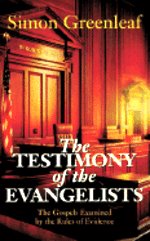 The Testimony of the Evangelists by Simon Greenleaf is a short and concise book that aims to evaluate the claims of the Gospel writers by the rules of evidence. Simon Greenleaf, a law professor at Harvard from 1833-48, wrote a three-volume work entitled, “A Treatise on the Law of Evidence.” Because of the author’s fame in the area of law, this book has been heralded many times as powerful testimony to the reliability of the Gospels. This reviewer found the book a disappointment.
The Testimony of the Evangelists by Simon Greenleaf is a short and concise book that aims to evaluate the claims of the Gospel writers by the rules of evidence. Simon Greenleaf, a law professor at Harvard from 1833-48, wrote a three-volume work entitled, “A Treatise on the Law of Evidence.” Because of the author’s fame in the area of law, this book has been heralded many times as powerful testimony to the reliability of the Gospels. This reviewer found the book a disappointment.




